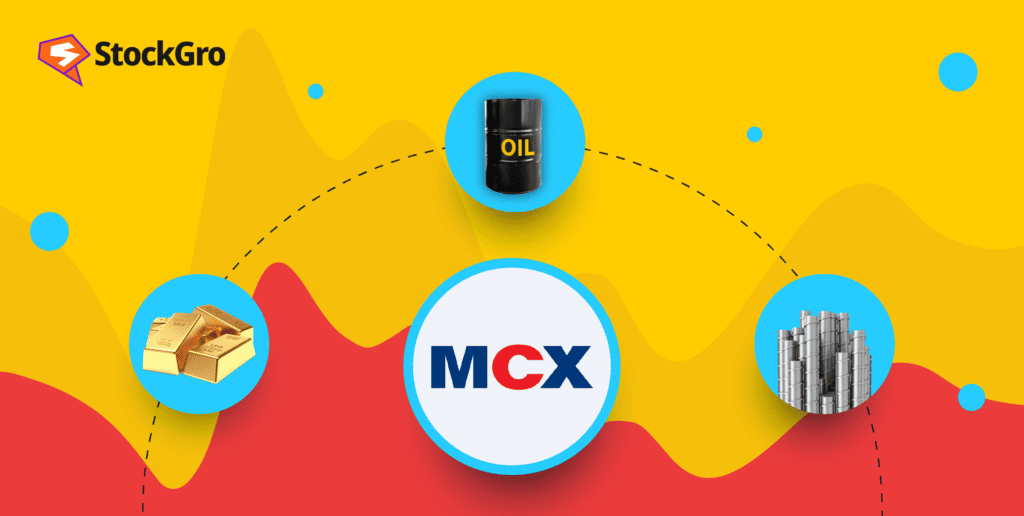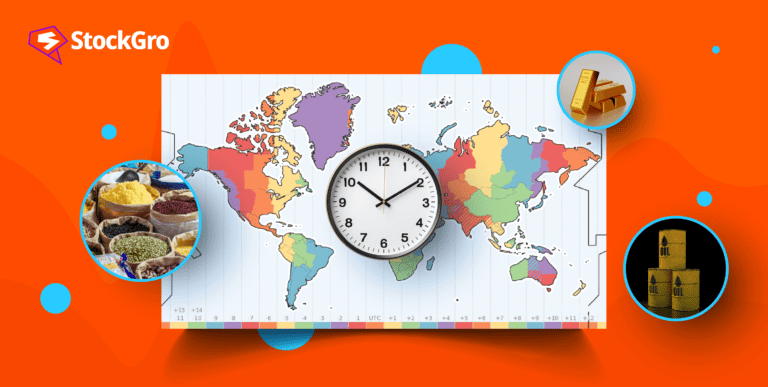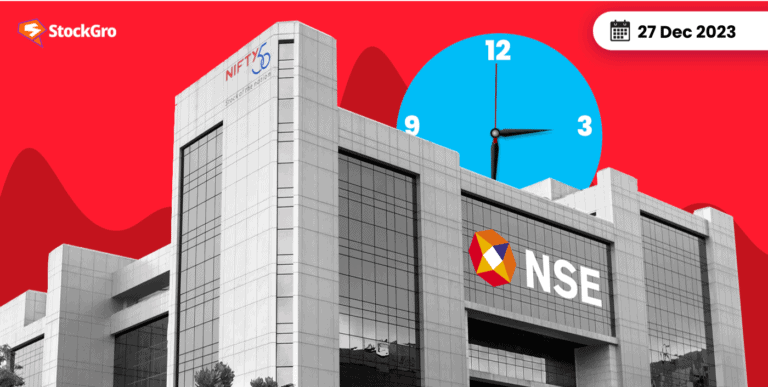
Commodities are equally essential to the economy as to global trade. However, the prices of commodities may fluctuate depending on multiple reasons. So, how can investors, traders, producers, and consumers hedge their risks and benefit from the opportunities in the commodity market?
One way is to use commodity derivatives, contracts that depend on the value of the underlying commodities. Among other major exchanges in India, Multi Commodity Exchange has been providing trading in commodity derivatives since 2003.
In this article, we will highlight the features of MCX, its history, and how you can trade commodities on the first commodity derivatives exchange in India.
You may also like: What is a commodity? A short guide before you trade
Commodity exchange market: What is it?
Agricultural products, which often have unstable prices, are traded on a commodities exchange, also known as a market. In the past, farmers would sell their surplus produce in markets for quick cash, usually with a verbal agreement.
Later, the development of formal trading terms and standardised contracts helped commodities markets grow. Nowadays, they are regulated by the government, and trading is facilitated by a 24/7 network of stock exchanges and futures markets.
The commodities exchange is not used by traders to obtain any actual goods. Instead, they trade futures contracts, wherein the parties agree to either buy or sell a given quantity of the commodity at a predetermined price. At the predetermined expiration date of the contract, the deal is executed regardless of its true market value.
Introduction to MCX India and Its Role
MCX’s full form in the share market is Multi Commodity Exchange. The first commodity derivatives exchange in India, MCX, allows traders to transact commodities derivatives online. It started operations in 2003 and is regulated by SEBI. MCX provides futures and options contracts on various commodities from different market areas, including industrial, base metals, bullion, energy, and agriculture.
The Forward Markets Commission (FMC) formerly served as MCX’s regulatory oversight body. However, after the merger of FMC with SEBI in 2016, the Securities and Exchange Board of India took over the regulatory authority of MCX. The Multi Commodity Exchange is an important part of the country’s financial system and comes with a platform for trading and investing in a wide range of commodities.
When it comes to providing commodity derivative contracts across several industries, such as oil & gas, gold, wheat, and more, MCX functions similarly to the Bombay Stock Exchange and the National Stock Exchange.
Also read: Futures vs. Options: Differences every investor must know!
What is MCX trading? Tradable commodities on MCX
Traders can exchange a variety of contracts, including spot, options, and futures, for numerous commodities on the MCX platform. The MCX also enables the physical or cash settlement of contracts, such as the delivery of commodities.
The Multi Commodity Exchange of India is a significant player in the commodity futures trading industry in India, with a 95.24% market share for FY 2023-24 (Apr-Sep). It offers contracts for futures in various categories, including agricultural products, metals, currencies, soft commodities, and energy. Some companies, like CRISIL, Fitch Ratings, and India Ratings, check whether the products are good and give a score to the products.
How can you trade in MCX?
You may use your usual online Demat account to trade on MCX. Follow these steps if you wish to trade on MCX:
Step 1: Open a trading and demat account with a broker specialising in MCX trading. Before deciding on a broker, examine their brokerage fees, margin requirements, and other characteristics.
Step 2: Move funds into your account and choose which commodities to trade. On MCX, you can trade commodities such as metals, energy, agricultural items, and currencies.
Step 3: Place buy or sell orders for your preferred commodity futures or options contracts. You can use several order types to execute your trades, such as market, limit, stop-loss, and so on. You can also use technical analysis, fundamental analysis, or other methodologies to make informed trading judgements.
Step 4: Regularly analyse your positions and margins; close your transactions before the contracts expire. If you want to keep your roles, you can roll them over to the next contract month. Depending on the contract conditions and your preferences, you can settle your trades in cash or choose to physically deliver the commodities.
Also read: How to trade in options and maximise your profit?
Key Factors Affecting Commodity Prices on MCX
As we have discussed earlier, commodities might be subject to price fluctuations due to many factors. Let’s look at them one by one.
- Supply and demand
The ratio between supply and demand is the most important factor influencing commodity pricing. The demand and supply of commodities can change due to seasonal changes, domestic economic situations, and global market forces. Prices often rise when supply cannot keep up with demand, and vice versa.
- Geopolitics
Commodity prices can be greatly affected by geopolitical events and situations. For example, political instability in key regions that produce commodities can disrupt supply chains and cause price fluctuations. Also, trade disputes, blockades, and sanctions can affect the global movement of commodities, impacting prices in both positive and negative ways.
- Cost structures
Production costs have a big influence on commodity prices. This cost includes expenses for research and development, raw material purchases, labour pay, taxes, and other operational costs. The price of commodities may be directly impacted by changes to these cost components.
- Technological progress
Technological innovation is important in determining commodity pricing. Better technology can improve production efficiency, resulting in more output and lower marginal costs. As technology advances, it can increase supply while reducing production costs, affecting commodity prices.
Conclusion
Although not everyone finds commodities markets to be appealing, they could work really well for your portfolio. Currently, MCX stands as the nation’s most technologically advanced and user-friendly exchange. It has led the way in launching a number of cutting-edge items for trade, meeting the demands of all major trading communities around the nation in the process. Consider making an investment in commodities on MCX and other commodity exchanges if you wish to diversify your assets.
FAQs
What are the trading hours for MCX India?
MCX India operates from 9:00 AM to 11:30 PM IST, Monday to Friday, with extensions to 11:55 PM during U.S. daylight saving time.
How is the settlement process conducted on MCX India?
Settlements on MCX involve either physical delivery of commodities or cash settlement, depending on the contract specifications.
What are the risks involved in trading on MCX India?
Risks in MCX trading include market volatility, liquidity issues, and geopolitical factors affecting commodity prices.
How can I open an account for trading on MCX India?
To open a trading account on MCX, sign up on stockgro, complete the KYC process, and submit necessary documents.
What commodities can I trade on MCX India?
MCX offers trading in commodities like precious metals (gold, silver), base metals (copper, aluminum), energy products (crude oil, natural gas), and various agricultural commodities.

